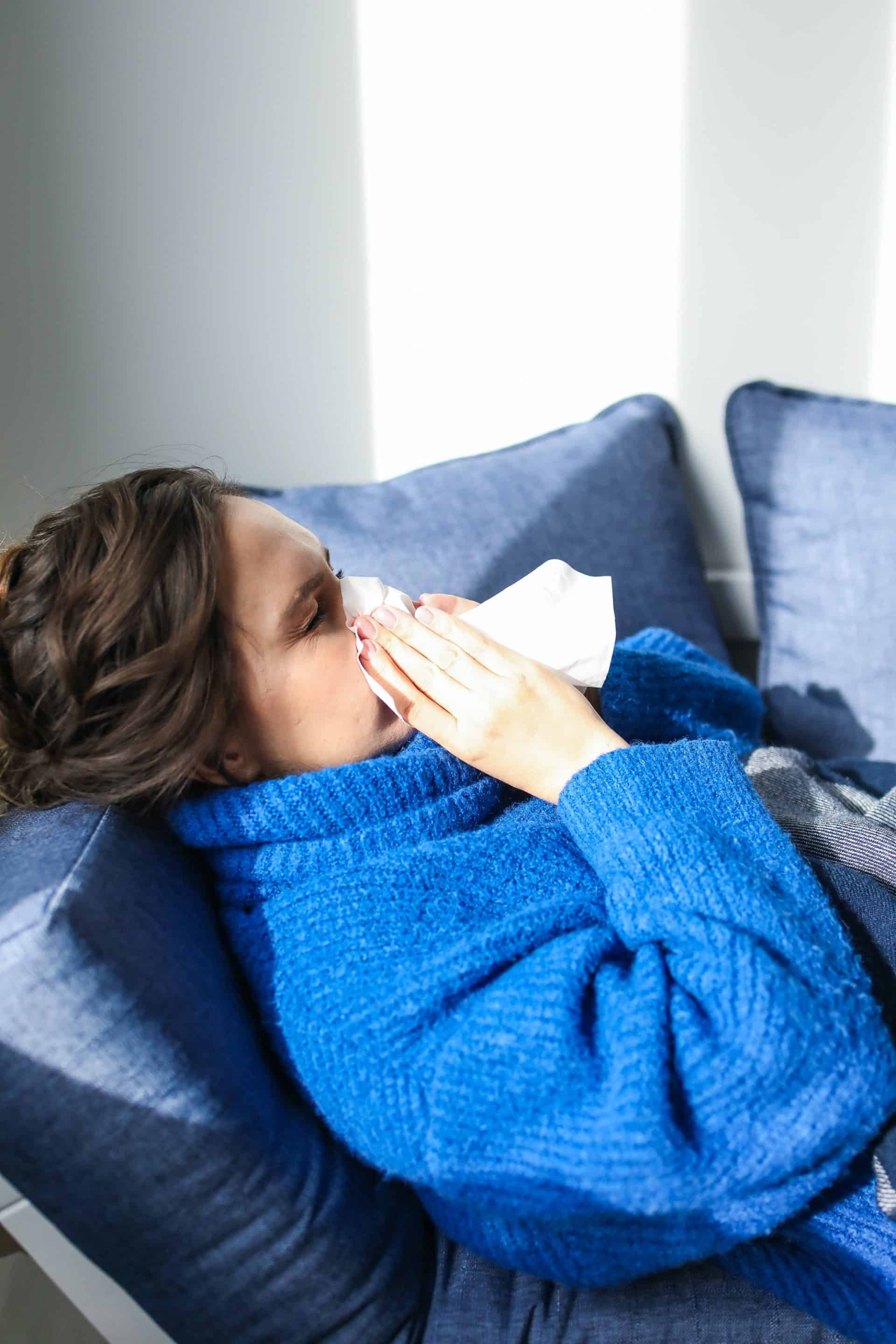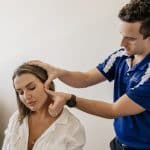What To Do If You Have Covid.
The Omicron variant of COVID-19 is considered to be a much weaker, albeit much more contagious, version of the virus[1], but over the next few weeks and months it is looking incredibly likely that most Queenslander’s will become infected.
Combined with high vaccination rates, this weaker strain of COVID-19 has shown only mild symptoms in greater proportions of cases than ever! Some of the most common problems people are noticing include headaches, joint pains, and shortness of breath.
So how do you prepare for COVID-19, and how can you deal with the side effects of being infected?
Headaches
A great big pounding headache is not what most people have in mind when they think COVID-19, but despite being an infection of primarily the respiratory system, headaches have consistently been demonstrated as a common feature of the virus. While people’s experience with headaches may be different, there are several common remedies which are worth trying.
It’s always a good idea to stock up on some different types of medications useful in treating headaches. Things like paracetamol, ibuprofen, and aspirin are always a good go to, but sometimes if you find these aren’t helping it can even be good to try using a simple ice pack over your head or neck to settle things down.
-
Stay hydrated
It’s also important to make sure that your headache isn’t for other reasons too. Being sick doesn’t always lead to the best self care, so making sure you’re trying to drink plenty of water throughout the day can minimise the effects of dehydration on your headaches.
Myalgia and Fatigue
The next common issue people get is muscle aches and pains, also known as myalgia. If you’ve ever had a case of the flu then you would probably know what myalgia feels like. Viruses can often lead to myalgias due to the widespread inflammation occurring in the body when it’s fighting the infection.
-
Try over the counter pain killers
Remember those anti-inflammatories from before? Just like with headaches, they can provide some relief to people suffering from myalgias. However, just like with any medication it can be a good idea to check with your doctor or pharmacist to make sure it’s right for you.

-
Heat packs and warm showers
Failing any improvement with anti-inflammatories, hot baths and heat packs can also be a nice alternative to help the muscles relax and recover.
-
Let the body rest (but make sure you stay mobile)
One important thing is to also make sure you’re taking things easy. It can be frustrating doing nothing if you’re normally quite active, but your body needs to rest so it can direct its energy to fighting the infection. Now this isn’t to say you should be glued to your couch the whole time you are sick; gentle walks and light stretching can make sure you don’t start to get too sore, but be careful to not overdo it.
Shortness of Breath
The most common physical symptom of COVID-19 is shortness of breath[2]. Medically this is known as dyspnoea, and is often described as having either breathlessness or discomfort in breathing. Shortness of breath is a normal sensation to experience during periods of heavy exertion such as exercise, but as a side effect of infection you may become short of breath with only light activity, or even when you’re at rest. For people with pre-existing respiratory conditions this shortness of breath can become exacerbated. There are particular breathing techniques which have been shown to help decrease dyspnoea in COVID-19 patients, and can even be done at any stage of the infection [3]. You can organise a telehealth appointment with a physio at Graceville Physio and we can help you with respiratory physio and breathing exercises to assist with this.
-
Watch your posture
The first thing to be mindful of is posture: make sure you’re sitting upright. If you’re laying in bed flat on your back then the pressure of your internal organs can actually block your lungs from expanding fully! If you sit up then gravity will pull your organs out of the way and let your lungs do their job properly.
-
Rectangular breathing
A common breathing exercise you can try is something called rectangular breathing. Rectangular breathing is something a lot of people who suffer from anxiety use to help with rapid breathing and shortness of breath during anxiety attacks. For that reason it has a really nice place in managing shortness of breath in other situations too. The main idea in rectangular breathing is that for each breath in, you want to breath out TWICE AS LONG. For example if you take a full 3s breath in, you want to breathe out for 6s. This stops you from hyperventilating, but it also makes sure you fully empty your lungs so your next breath can be even more effective! Practicing doing 10 breaths of rectangular breathing is a great way to help reset yourself if you’re feeling puffed.
Although the majority of cases of COVID-19 will be mild and manageable in home quarantine, we do know that a certain proportion of people will need to be taken care of in the hospital. While you are infected, if you notice new or worsening symptoms or if you are concerned about your symptoms at any time, you should contact your doctor or call the COVID hotline at 13 42 68. In the event that you are experiencing serious and uncontrollable shortness of breath, or any other severe symptoms, you should call 000 and let the operator know your situation.



